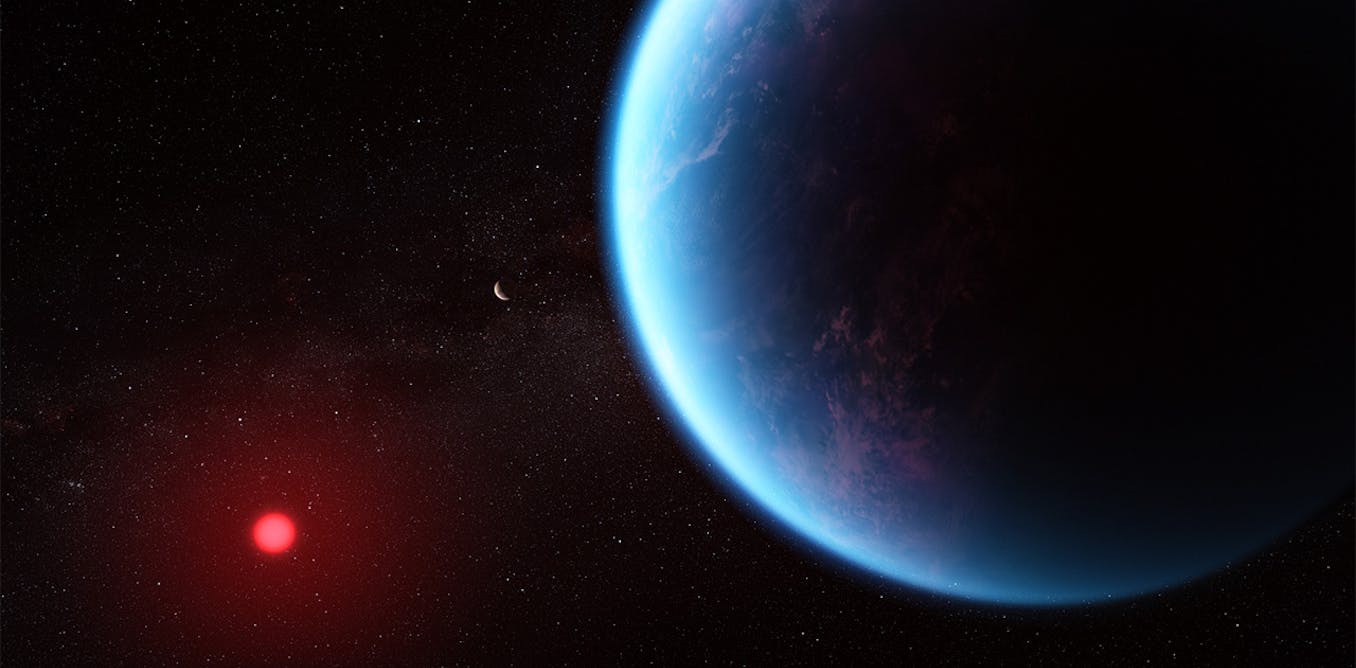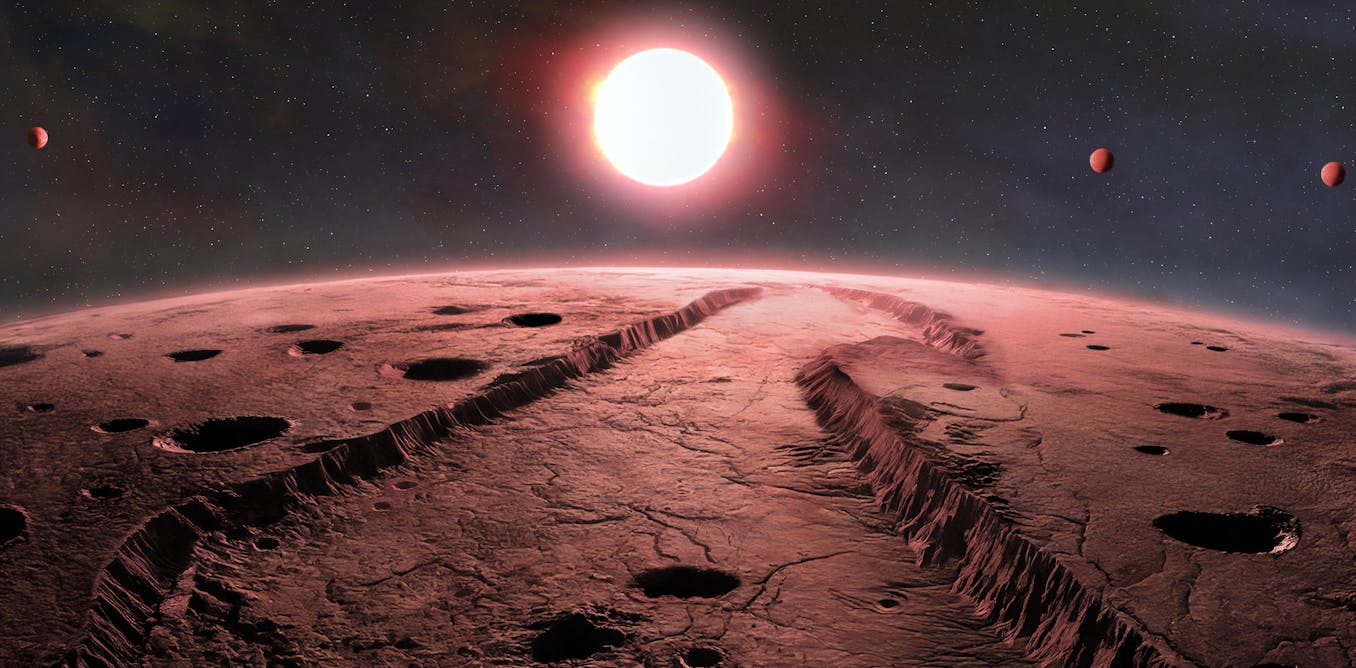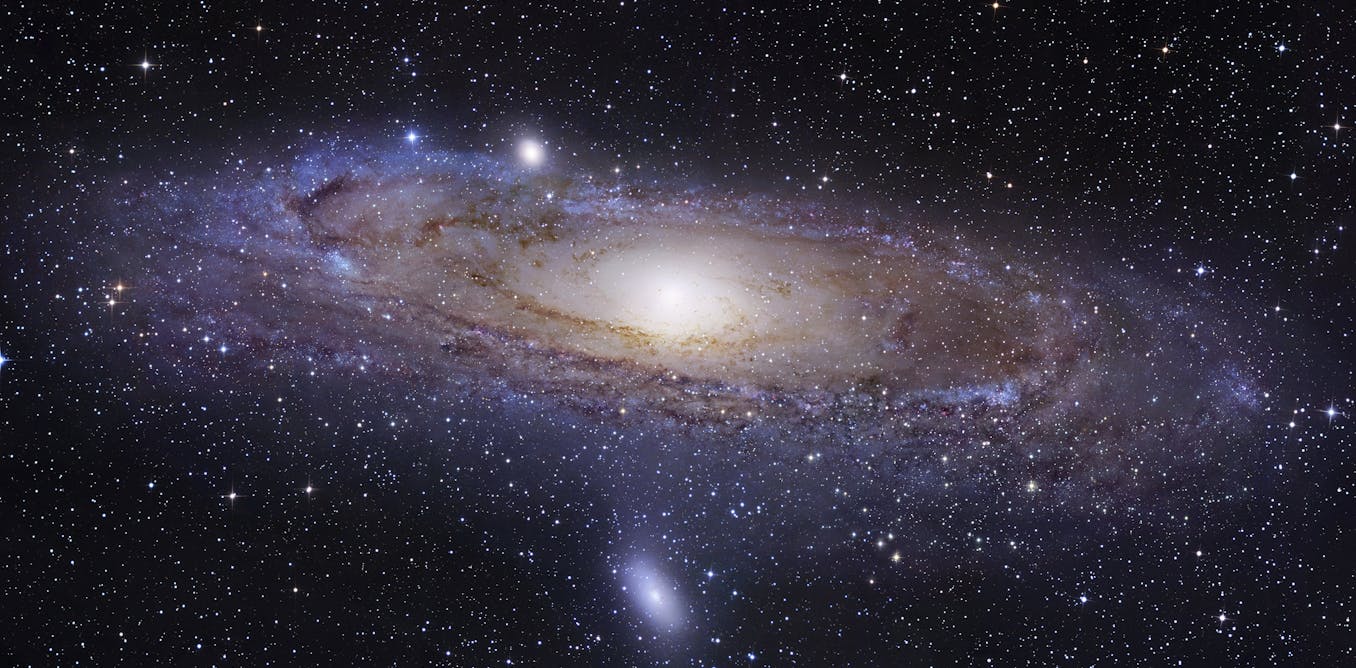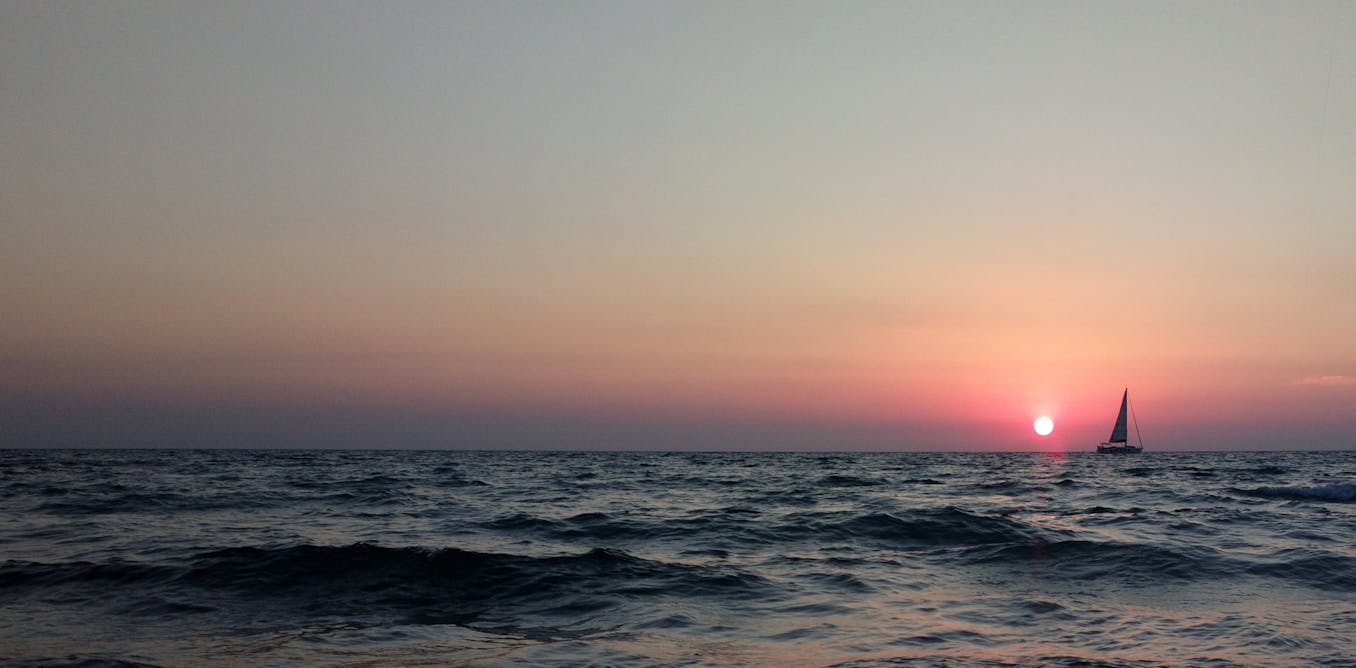Scientists found a potential sign of life on a distant planet – an astronomer explains why many are still skeptical
The exoplanet K2-18b could harbor a massive ocean, but scientists will need to study the planet more to see if it’s really likely to host life.
April 18, 2025 • ~9 min
Mysterious objects from other stars are passing through our solar system. Scientists are planning missions to study them up close
Learning about these interstellar objects could give us insights into other star systems.
April 15, 2025 • ~9 min
Jets from powerful black holes can point astronomers toward where − and where not − to look for life in the universe
Whether a galactic environment has the right conditions for habitable planets to form could depend on how the black hole in that galaxy is rotating.
March 31, 2025 • ~7 min
What was the first thing scientists discovered? A historian makes the case for Babylonian astronomy
Science uses careful, organized observations and tests to construct theories that are recorded, passed on to others and built on.
March 17, 2025 • ~8 min
One large Milky Way galaxy or many galaxies? 100 years ago, a young Edwin Hubble settled astronomy’s ‘Great Debate’
Hubble’s work pushed the field of astronomy forward, starting with his paper demonstrating that some objects exist outside our galaxy.
Jan. 24, 2025 • ~10 min
From new commercial Moon landers to asteroid investigations, expect a slate of exciting space missions in 2025
From exploring the Moon to revealing mysteries of the solar system, space agencies around the world are gearing up for an exciting year of launches and flybys.
Dec. 26, 2024 • ~11 min
In Disney’s ‘Moana,’ the characters navigate using the stars, just like real Polynesian explorers − an astronomer explains how these methods work
Disney’s ‘Moana’ movies have brought a new level of excitement for astronomy and wayfinding, says an astronomer who regularly hosts planetarium shows.
Dec. 20, 2024 • ~7 min
How does the International Space Station orbit Earth without burning up?
The International Space Station is an engineering feat that has led to countless scientific discoveries. Like the thousands of satellites in orbit, it manages to stay up in the atmosphere.
Dec. 16, 2024 • ~8 min
/
20










